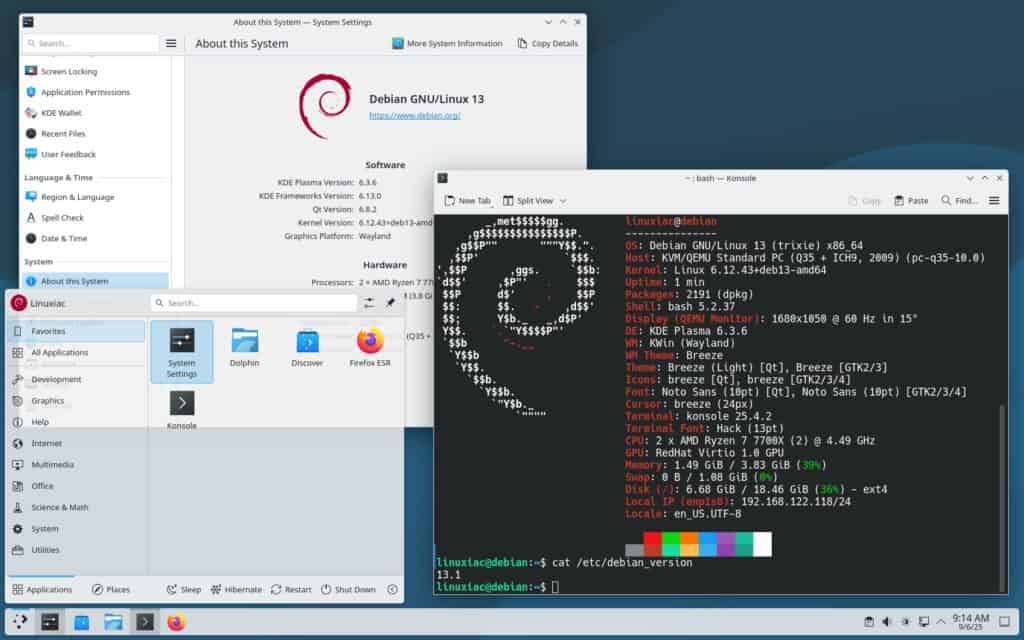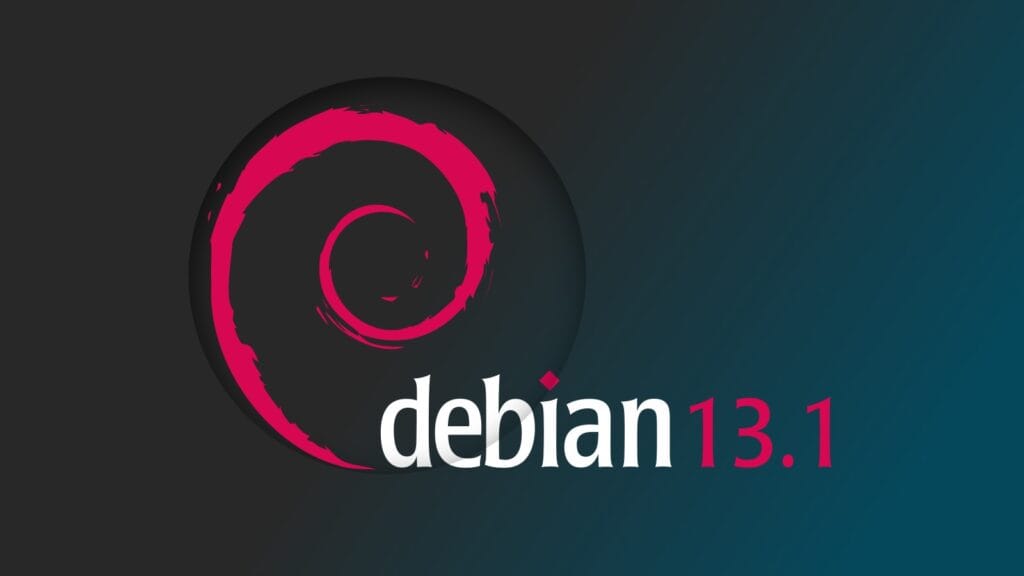Almost two months after the previous major 13.0 release, the Debian Project rolled out the first update to the stable 13 “Trixie” series, primarily focusing on improving security and addressing bugs across various packages.
If you’ve been keeping your system updated through security.debian.org, there’s not much to do with this release—most of the fixes were already included in earlier updates. 13.1 just brings them together in one place. However, if you’re doing a fresh install, this is the version to download and set up.
The release includes a wide range of corrections across system tools, libraries, and applications. Some of the notable ones include:
- Installer: Updated to Linux kernel 6.12.43 with a fix for a GRUB graphics initialization bug.
- Git: Multiple vulnerabilities patched, including arbitrary file write and code execution issues.
- ImageMagick: Fixed several high-impact flaws, from buffer overflows to use-after-free bugs.
- PostgreSQL 17: Security tightened in query planner and pg_dump.
- LibreOffice: Added support for the euro currency in Bulgaria and fixed media playback issues in Impress.
- Network components: Updates to
dpdk,ethtool,iperf3,network-manager-openvpn, andnginx, addressing both stability and CVEs. - Desktop environment: Fixes in GNOME components such as
gnome-control-center,gnome-shell, andlibadwaita-1, plus adjustments in MATE and XFCE tools. - System tools: Updates to
systemd,samba,qemu,modemmanager, and more.
In addition, guix has been removed from the archive due to unresolved security concerns.

Debian 13.1 also consolidates a series of advisories, covering major packages like Chromium, Firefox ESR, Thunderbird, WebKitGTK, QEMU, and libxml2. Debian users who applied these updates as they were released won’t see major differences, but the bundled installer and ISO images now include them by default.
Once again, Debian 13.1 doesn’t add any new features to the “Trixie” release—it’s all about fixing bugs and addressing security issues in certain packages. So, if you’re already using it, simply run the command below to update your system to the latest stable version.
sudo apt update && sudo apt upgradeCode language: Bash (bash)Alongside Debian 13.1, the project has also shipped Debian 12.12, the twelfth update to the “Bookworm” oldstable branch. Like its newer counterpart, it packs in a bunch of important fixes—83 security patches and 135 bug corrections—covering key packages like Apache, Bash, ClamAV, Docker, PostgreSQL, systemd, and the Linux kernel.
Security advisories for Debian 12.12 were already published separately, but are now rolled into updated installation images.
For more in-depth information on all the changes in Debian 13.1, see the release announcement. A comprehensive list of all packages that have received updates is available here.
Debian 13.1 netinst ISO images are available for download here. They offer a base system perfect for servers or users who prefer to customize the installation to suit their needs. It supports six architectures: amd64, arm64, armhf, ppc64el, riscv64, and s390x.
For a more ready-to-use experience, the new release also provides Live images featuring pre-installed desktop environments like GNOME, KDE, LXDE, Xfce, Cinnamon, and MATE. Please note that they are available only for the AMD64 architecture.
Lastly, consider enabling automatic security updates to receive future patches without delay if you haven’t already done so. If you’re unsure how to do it, our guide will have you up and running quickly.
